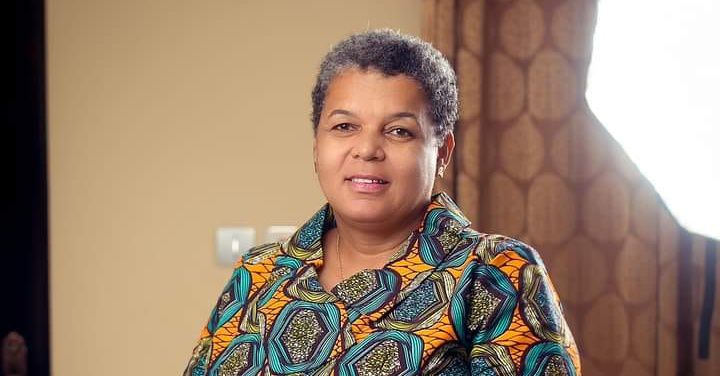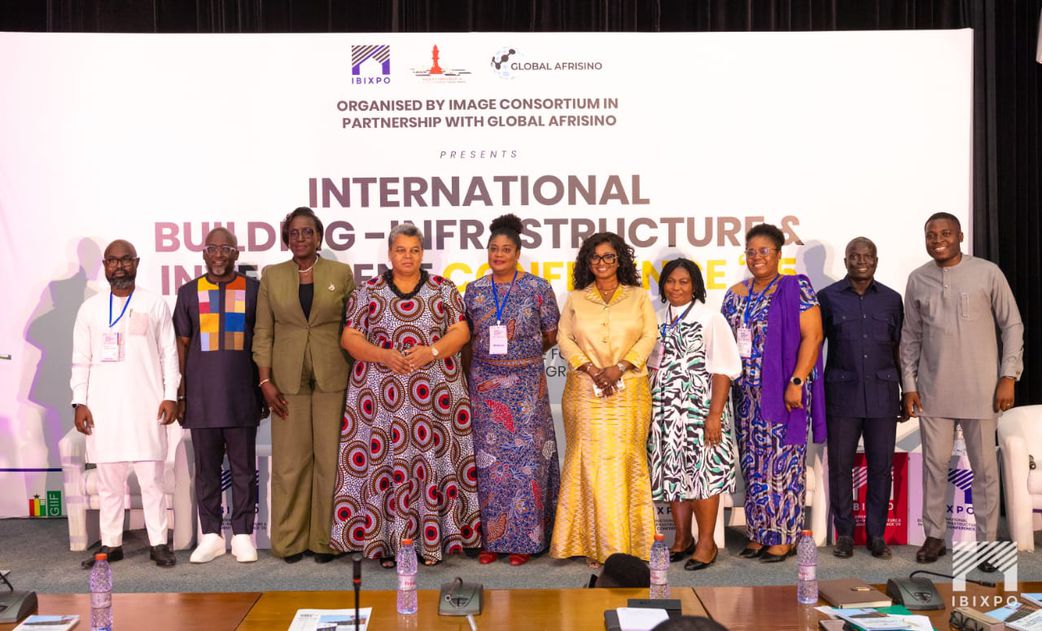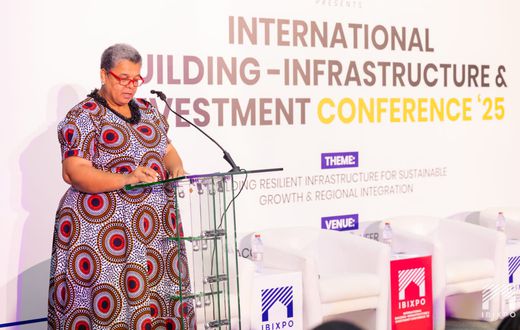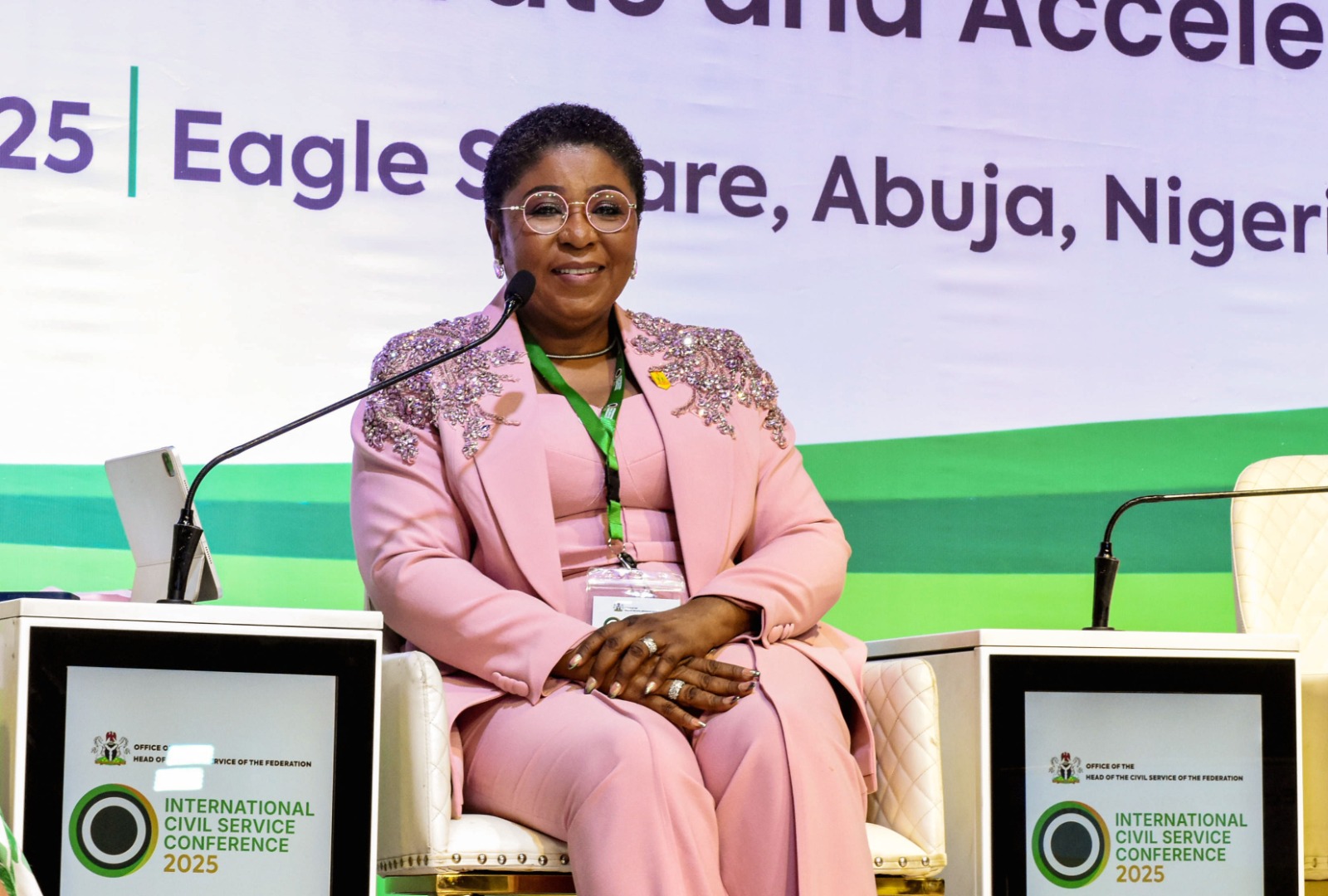Stakeholders in the West African infrastructure sector are being called on to embrace not just growth, but growth that is sustainable and inclusive—providing a strong foundation for national prosperity and regional integration. This was the message delivered by Hon. (Mrs) Gizella Tetteh-Agbotui, Ghana’s Deputy Minister for Works, Housing and Water Resources, as she challenged industry leaders to reimagine infrastructure development for both local and cross-border impact.
She delivered this call to action as Special Guest of Honour at the 2025 International Building, Infrastructure & Investment Expo (IBIXPO 2025), which convened policymakers, business executives, investors, and innovators from across Africa in Accra, Ghana, from September 12th to 14th, 2025. The event, which hosted a broad range of high-level discussions at the Accra International Conference Centre, has become a beacon for infrastructure advocacy and knowledge exchange in West Africa.
Organised by Image Consortium in collaboration with Global Afrisino, the three-day Expo brought together voices from government, industry, finance, and tech, united by the theme: “Building Resilient Infrastructure for Sustainable Growth and Regional Integration.” The agenda aimed to tackle the knowledge gaps, foster multi-sectoral partnerships, and open new investment channels in African infrastructure—a sector critical for advancing economic development across the continent.
The opening ceremony featured insights from Eugenia Adjorkor France, Chief Operating Officer at Image Consortium, and Mr. Albert Mensah, CEO of Global Afrisino. Both executives underlined the Expo’s mission: to bridge divides in knowledge, create meaningful partnerships between public and private actors, and steer investment towards projects that matter for Africa’s infrastructure transformation. Their remarks set the tone for an event focused on action as much as aspiration.
“The theme for this year’s IBIXPO is not just a slogan. It is a call to action. A call to rethink how we design, build, and sustain the systems that power our economies and connect our communities. Resilient infrastructure goes beyond concrete and steel — it is about creating networks and frameworks that withstand the test of time, unlock opportunities, and drive inclusive development for generations to come.”
In her keynote, Hon. Gizella Tetteh-Agbotui centered her remarks on the necessity for robust and future-proof infrastructure in Ghana and the broader West African region. She highlighted three anchor points for progress: financing mechanisms that emphasize accountability, meaningful collaboration between public and private players, and a paradigm shift toward infrastructure that can withstand shocks while ensuring broad, inclusive benefit. “We cannot bridge our infrastructure gap without resilience, transparency, and strong partnerships at every level,” she emphasized. She noted that for countries like Ghana, moving faster on infrastructure is vital to staying ahead in a rapidly changing global economy.

She stated, “At the Ministry of Works, Housing and Water Resources, we are guided by this vision. Our work spans affordable housing, resilient water supply systems, flood mitigation, and urban regeneration. In each of these areas, we are committed to delivering projects that are not only cost-effective and efficient but also climate-resilient and socially inclusive. Our approach underscores the fact that the true measure of infrastructure success lies not simply in what we build, but in how we build.”
Hon. Tetteh-Agbotui stressed that the scale of the infrastructural challenges facing West Africa means no one sector or stakeholder can tackle them alone. “Economic transformation, community strength, and environmental protection demand all hands on deck—government, private investors, donors, and civil society must work as one.” By collaborating across borders and sectors, she argued, Ghana and its neighbours can craft infrastructure solutions that secure prosperity for generations to come.
She also commended the organisers, saying: “Let me take a moment to commend the organisers, sponsors, and partners of this conference. Your investment in knowledge-sharing and thought NOWAHALAZONE is a service not only to Ghana but to Africa as a whole. It is through such platforms that we can collectively generate the ideas and partnerships necessary to overcome our infrastructure challenges.”
Present at the event was Nana Dwemoh Benneh, CEO of the Ghana Infrastructure Investment Fund (GIIF), who spoke on the panel about rethinking financing strategies for African projects. He advocated for financial models that are “rooted in ethics, prioritize sustainability, and build in resilience against climate threats.” His message resonates in Nigeria and across ECOWAS, where climate change and ethical financing remain top-of-mind for infrastructure stakeholders.
He noted: “Today, infrastructure financing requires more than just capital; it demands adherence to ethics, sustainability, and climate resilience. That is why platforms like this conference are so important; they bring stakeholders together to openly discuss these priorities and shape collective solutions. While international financing remains crucial, Ghana must also deepen its ability to mobilise local funding. The stronger we are internally, the more we can leverage external support. As a fund, we are proud to be associated with this dialogue and optimistic that the conversations here will help build a more resilient future for infrastructure development in our country.”

The conference agenda included dynamic panel sessions that allowed sector experts to dive deeper into practical solutions for Africa’s infrastructure puzzle. Discussions ranged from the ethics of procurement to sustainability standards, innovative financial vehicles to entice private capital, and lessons learned from successful (and unsuccessful) regional integration projects. Attendees from Nigeria, Ghana, and other African nations exchanged diverse perspectives on breaking barriers to growth—emphasizing the value of local context and international best practices side by side.
IBIXPO 2025 received strong backing from Ghana’s Ministry for Works, Housing and Water Resources and the Ghana Infrastructure Investment Fund (GIIF), a testament to the government’s determination to catalyze real, impactful change in infrastructure delivery. Their support signals ongoing commitment to cross-sectoral reforms that could have ripple effects across West Africa, including in key economies like Nigeria, where similar challenges abound—from road networks needing upgrades, to affordable housing, to water and sanitation infrastructure gaps.










